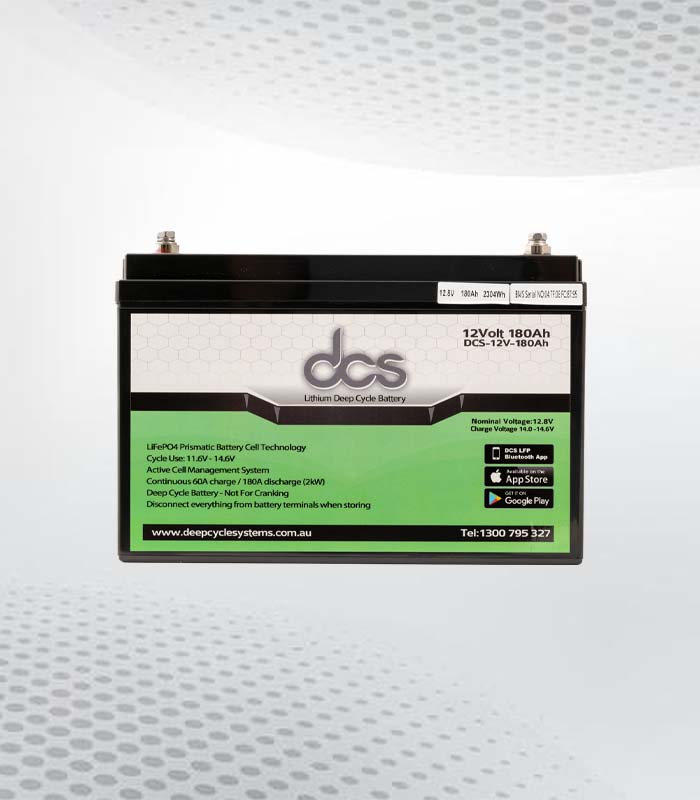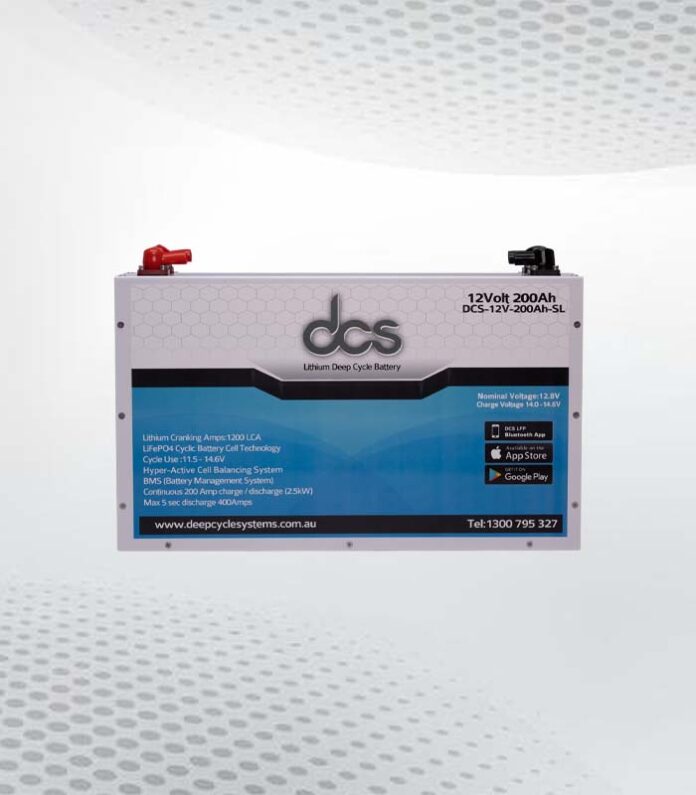A Lithium battery has the potential to revolutionize the way we store energy. Not only are they lightweight and highly efficient, but they can also provide a much greater storage capacity than traditional lead-acid or Ni-Cd batteries. Lithium batteries are becoming increasingly popular as a viable solution for energy storage, with their durability and rechargeable capabilities making them an ideal choice for applications such as electric vehicles, home energy storage systems, and portable electronic devices.
Fast Charging Capabilities
Lithium batteries are not only efficient and lightweight, but they also offer incredibly fast charging capabilities, setting them apart from other types of batteries. It means that you can quickly recharge your devices and get back to using them in no time.
With lithium batteries, you don’t have to wait for hours to charge your smartphone or laptop. In just a fraction of the time, you can have your device fully charged and ready to go. It is particularly useful for those who are always on the move and rely on their electronic devices for work or entertainment.
The fast charging capabilities of lithium batteries are especially important for electric vehicles. One of the main concerns for electric vehicle owners is the time it takes to recharge their cars. However, with lithium batteries, charging times are significantly reduced, making electric vehicles more convenient and practical for everyday use.
High Energy Density
When it comes to energy storage, one of the most important factors to consider is the battery’s energy density. And this is where lithium batteries shine. They have an incredibly high energy density, meaning they can store a large amount of energy in a compact and lightweight package.
Imagine having a battery that can power your portable electronic devices for longer periods without needing a recharge. With the high energy density of lithium batteries, this is now a reality. Whether you’re using your smartphone, tablet, or laptop, lithium batteries can provide extended usage times, allowing you to stay connected and productive without worrying about running out of power.
But it’s not just portable electronics that benefit from high energy density. Electric vehicles can also take advantage of this technology. Lithium batteries provide the power and range necessary for longer trips, making electric vehicles a more viable and convenient option for everyday transportation.
Lithium Battery Pack is Lightweight and Compact
A Lithium battery pack is not only powerful and efficient, but it also has another fantastic quality: it is incredibly lightweight and compact. It means that you can enjoy the benefits of a high-performing battery without having to lug around a heavy and bulky device.
Imagine carrying around a smartphone or laptop that is significantly lighter and smaller, thanks to a battery pack. Not only will it be easier on your back, but it will also make traveling and commuting much more convenient. Whether you’re a busy professional constantly on the go or a student who needs to carry their laptop to class, the lightweight and compact design of lithium batteries will make your life so much easier.
Furthermore, the compact size of lithium batteries allows for more design flexibility, making it easier for manufacturers to create sleek and slim devices. So, not only will you enjoy the convenience of a lightweight device, but you’ll also get to flaunt a stylish and modern gadget.
Low Self-Discharge Rate
Lithium batteries have another remarkable feature that sets them apart from other types of batteries: a low self-discharge rate. It means that even when not in use, lithium batteries can hold their charge for a long period of time without losing significant power.
Unlike traditional batteries that gradually lose their charge over time, lithium batteries retain their energy, making them ideal for devices that are not used frequently or for backup power applications.
For example, if you have a portable electronic device that you only use occasionally, like a digital camera or a power tool, you can rely on a battery to provide instant power when you need it, even if the battery has been sitting idle for weeks or even months.
This low self-discharge rate also means that you don’t have to constantly recharge your devices to keep them ready for use. With a battery, you can confidently grab your smartphone or tablet, knowing that it will still have a decent amount of power, even if you haven’t used it for a while.
Low Maintenance
Maintaining a battery is a breeze, making it an incredibly low-maintenance option for energy storage. Unlike other types of batteries that require regular upkeep and monitoring, lithium batteries can operate smoothly with minimal effort on your part.
One of the main reasons why lithium batteries are low maintenance is their lack of memory effect. It means that you don’t have to worry about fully discharging the battery before recharging it, as is the case with some other battery types. With lithium batteries, you can recharge them whenever it’s convenient for you, without affecting their overall performance or capacity.
Additionally, lithium batteries have a longer lifespan compared to other battery types. They are designed to withstand numerous charge and discharge cycles, allowing them to be used for extended periods without experiencing significant degradation. It means less frequent replacements and fewer trips to the store to buy new batteries.
Environmentally Friendly
Lithium batteries not only offer numerous benefits in terms of performance and convenience but are also an environmentally friendly option for energy storage. These batteries contribute to a greener and more sustainable future by reducing our dependence on fossil fuels and minimizing our carbon footprint.
One of the key ways in which lithium batteries are environmentally friendly is their energy efficiency. They have a higher energy density compared to other battery types, which means they can store more energy while using fewer resources. It leads to less waste and a more efficient use of energy.
Additionally, lithium batteries are recyclable. The lithium-ion cells can be safely and effectively recycled, allowing for the recovery of valuable materials like lithium, cobalt, and nickel. This helps to conserve resources and reduce the need for new mining and extraction, which can have harmful environmental impacts.
Furthermore, the longer lifespan of lithium batteries compared to other battery types means fewer batteries end up in landfills. By using lithium batteries, we can minimize the amount of electronic waste and reduce the environmental damage caused by improper disposal.
Versatility
Lithium batteries are not only powerful and efficient, but they are also incredibly versatile. They can be used in a wide range of applications, making them a flexible choice for energy storage solutions.
One of the key areas where lithium batteries excel is in the field of renewable energy. They can be seamlessly integrated into solar or wind energy systems, storing the energy generated during peak production for later use. It ensures a steady and reliable power supply, even when the sun isn’t shining or the wind isn’t blowing. Additionally, lithium batteries can be combined with other energy storage technologies, such as fuel cells or supercapacitors, to create hybrid energy systems that provide even greater versatility and resilience.
Lithium batteries are also ideal for off-grid living or remote locations. They can power cabins, boats, or RVs, allowing individuals to enjoy the comforts of modern technology in even the most remote places. Furthermore, lithium batteries can be used in emergency backup power systems, providing a reliable source of energy during power outages or natural disasters.
FAQs
Are lithium batteries safe to use?
Yes, lithium batteries are generally safe to use when handled properly. However, it’s important to follow the manufacturer’s guidelines and avoid mishandling or damaging the batteries. Overcharging or exposing lithium batteries to extreme temperatures can cause them to malfunction or even catch fire. It’s recommended to use the original charger provided by the manufacturer and avoid using damaged or expired batteries.
How long do lithium batteries last?
The lifespan of a lithium battery depends on various factors, such as the quality of the battery, usage patterns, and environmental conditions. On average, lithium batteries can last anywhere from 2 to 10 years. However, with proper care and maintenance, some lithium batteries have been known to last even longer. It’s important to regularly check the battery’s health and replace it if it starts showing signs of deterioration or decreased performance.
Can lithium batteries be recycled?
Yes, lithium batteries are recyclable. Recycling lithium batteries helps to conserve valuable resources like lithium, cobalt, and nickel. Additionally, proper recycling ensures that harmful materials in the batteries, such as lithium, are safely disposed of and don’t end up in landfills, where they can have detrimental environmental impacts. Many electronics stores and recycling centers accept lithium batteries for recycling, so be sure to dispose of them responsibly.
Conclusion
In conclusion, lithium batteries have proven to be a game-changer in the field of energy storage. With their lightweight and compact design, high energy density, fast charging capabilities, and low self-discharge rate, they offer a wide range of benefits for various applications. From powering portable electronic devices to providing the power and range necessary for electric vehicles, lithium batteries have revolutionized the way we use and store energy.

